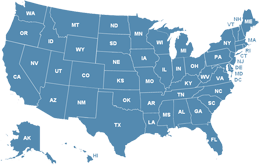What We Do
The Administration on Intellectual and Developmental Disabilities (AIDD) is dedicated to ensuring that individuals with developmental disabilities and their families are able to fully participate in and contribute to all aspects of community life in the United States and its territories.
AIDD’s work supports approaches that shape attitudes, raise expectations, change outdated or broken systems and empower individuals with disabilities to pursue the lives they imagine for themselves. To that end, AIDD provides financial and leadership support to specific types of organizations in every state and territory in the United States. These bodies assist people with developmental disabilities and their families in obtaining the support needed to achieve all the aspects of a life envisioned and defined by the Developmental Disabilities Assistance and Bill of Rights Act of 2000 (DD Act).The DD Act establishes four grant programs that are overseen by AIDD:
- State Councils on Developmental Disabilities (Councils)
- State Protection and Advocacy Systems (P&As)
- University Centers for Excellence in Developmental Disabilities Education, Research and Service (UCEDDs)
- Projects of National Significance (PNS)
AIDD grantees ensure that individuals with developmental disabilities
- Have access to opportunities and the necessary supports to be included in community life
- Have interdependent relationships
- Live in homes and neighborhoods of their choosing
- Make contributions to their families, communities, states and the nation
Individuals with developmental disabilities drive grantee projects through participation in public forums and other methods. The developmental disabilities population helps determine what areas to invest in and how grantees use AIDD funds. Some grantees, like Councils and UCEDDs, use public forums to assess the needs of individuals with developmental disabilities. P&As, on the other hand, perform work that is client-initiated, meaning someone comes to them with a problem or issue that needs solving on a case-by-case basis.
Through research, education, advocacy and the implementation of diverse projects, AIDD and its grantees help individuals with developmental disabilities receive quality care and education, protect their health, excel in careers of their choice, travel freely, live independently, participate in activities they find fulfilling and make informed choices about the kinds of services and supports they receive.
On April 16, 2012, the U.S. Department of Health and Human Services combined AIDD, the Administration on Aging, and the Office on Disability into a new agency called the Administration for Community Living. In addition, the Administration on Developmental Disabilities changed its name to the Administration on Intellectual and Developmental Disabilities.

